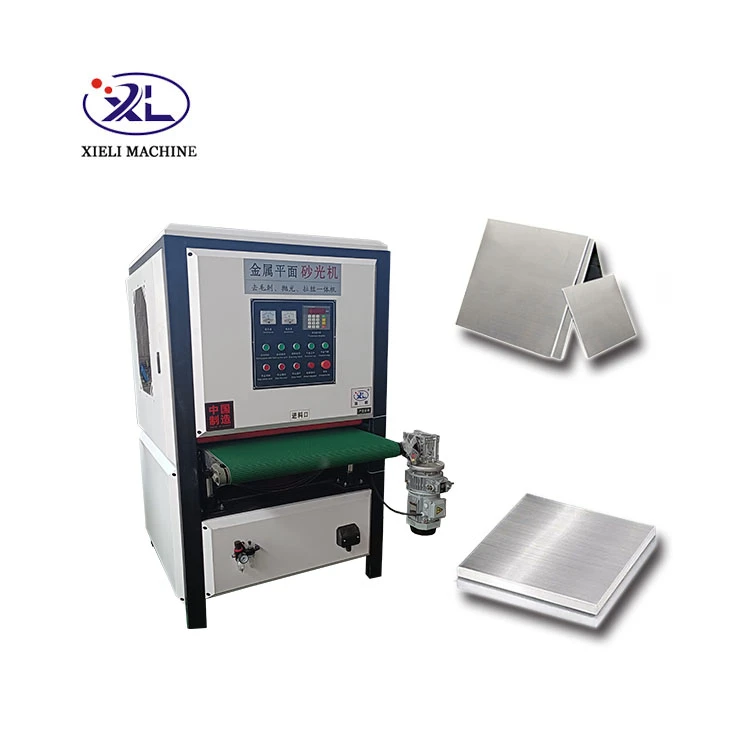CE Certification for Centerless Grinder Manufacturers An Essential Guide
In today's globalized manufacturing landscape, adhering to international standards is essential for businesses aiming to expand their reach and enhance product quality. One of the key certifications that can help manufacturers achieve this goal is the CE mark. This article explores the importance of CE certification specifically for centerless grinder manufacturers, its implications, and the benefits it offers in the marketplace.
Understanding CE Certification
CE certification is a mandatory conformity marking for certain products sold within the European Economic Area (EEA). The letters CE stand for Conformité Européenne, which translates to European Conformity. The CE mark signifies that a product meets the essential health, safety, and environmental protection requirements set forth by the European Union (EU). This certification is particularly vital for companies looking to access the European market, as it enhances product credibility and acceptance among customers and regulatory bodies alike.
The Role of Centerless Grinders in Manufacturing
Centerless grinders are essential machines used in various industries for producing high-precision components. These grinders operate without the need for a fixture, allowing for the efficient processing of a wide range of materials, including metals and plastics. They are particularly valued for their ability to handle long, cylindrical parts, making them indispensable in sectors such as automotive, aerospace, and medical device manufacturing.
Given the critical role that centerless grinders play in ensuring precision and quality in manufacturing, achieving CE certification becomes a necessity for manufacturers. It assures customers that their products are designed and manufactured to meet high-quality standards.
Why CE Certification is Important for Centerless Grinder Manufacturers
1. Market Access Without CE certification, centerless grinder manufacturers would find it challenging to sell their products in the European market. The certification serves as a passport, granting access to a vast customer base and significantly increasing sales potential.
2. Quality Assurance CE certification indicates that a manufacturer has met rigorous safety and quality standards. This assurance helps to build trust with potential clients, reducing the perceived risk associated with purchasing machinery that may not meet established criteria.
ce certification centerless grinder manufacturers

3. Legal Compliance Compliance with EU directives is a legal requirement for products categorized under specific regulations. CE certification ensures that manufacturers adhere to these laws, thereby avoiding potential legal issues and costly penalties.
4. Competitive Advantage In a crowded marketplace, having a CE mark can set a manufacturer apart from its competitors. It demonstrates a commitment to quality and safety, giving certified companies an edge in attracting discerning customers who prioritize product standards.
5. Enhanced Reputation Certified manufacturers can leverage their CE mark as a marketing tool. It enhances their reputation in the industry, showcasing their dedication to quality and compliance. This recognition can lead to better business relationships and increased customer loyalty.
The Process of Obtaining CE Certification
The journey to obtaining CE certification involves several steps. Manufacturers must first determine which EU directives and standards apply to their products. For centerless grinders, this may include directives related to machinery safety, electromagnetic compatibility, and environmental impact.
Next, manufacturers need to conduct a thorough risk assessment and ensure that their products comply with the applicable requirements. This may involve product testing, quality control measures, and documentation to demonstrate compliance.
Once compliance is established, manufacturers can create a technical file, which includes all relevant documentation, design information, risk assessments, and test results. After compiling this information, they must affix the CE mark to their products and issue a Declaration of Conformity.
Finally, it’s advisable to engage with a notified body (if required by specific directives) to validate the compliance of the products. By following these steps, centerless grinder manufacturers can successfully obtain CE certification and open doors to new market opportunities.
Conclusion
CE certification is not just a bureaucratic requirement; it is a crucial aspect of ensuring product quality and marketability in the European Union. For centerless grinder manufacturers, achieving this certification can significantly impact their ability to compete in the global marketplace. By prioritizing compliance and quality assurance, manufacturers can enhance their reputation, improve customer trust, and ultimately drive business success. As industries continue to evolve, the importance of CE certification will only grow, making it a pivotal factor for manufacturers looking to thrive in an increasingly competitive environment.





